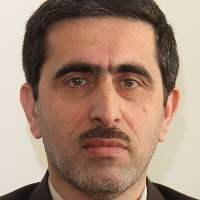Interactive Teaching of Science with the Approach of Explaining the Philosophical Foundations of the Nature of Science
This article is dedicated to the description and expansion of the concept of interactive education with emphasis on describing and explaining the essence and philosophical nature of science in the framework of the four dimensions of "cognitive knowledge", "cognitive knowledge", "cognitive methodology" and "cognitive value".
The research method was descriptive-analytical and the method of collecting information was documentary (library). What is concluded as the result of the research is that the index of "positive correlation", "individual responsibility", "face-to-face interaction (reciprocal action)", "social skills", "group processing", "interactive learning process", The planning phase, the implementation phase, and the evaluation phase crystallize and operationalize themselves as interactive teaching techniques in science teaching.
Based on the four dimensions of ontological, epistemological, methodological and cognitive value of the nature of science for science education, it was concluded that the learner is responsible for his own learning and based on the single strategy of experience, discovery, problem solving and individual thinking makes independent learning effective. He bases new learning on previous knowledge and by choosing appropriate strategies, he monitors learning and fulfills his learning expectations and goals.
based on action, a person reaches knowledge, therefore, the learning process is more important than the subject of learning. The responsible teacher builds the knowledge architecture by simulating life situations to promote analogical, inductive, lateral, critical, exploratory and problem-solving thinking.
-
Comparison of the Effectiveness of Life Skills Training and Mindfulness Skills on Risky Behaviors and Psychopathological Symptoms in Female High School Students of Varamin
Masoomeh Larni, Nemat Sotoudeh Asl*, Faezeh Jahan,
Journal of adolescent and youth psychological studies, Feb 2025 -
Development and Validation of the Educational Package of the Cognitive Strategy of Emotion Regulation based on the Theory of Mindfulness and its Effectiveness on the Prosocial Behavior of Male High School Students
Esmaeil Sadipour, Alimohammad Falahati Oushibi *, Soghra Ebrahimi Ghavam, Hasan Asadzade, Kamran Sheivandi Cholicheh
Research in Clinical Psychology and Counseling, Autumn and Winter 2025



